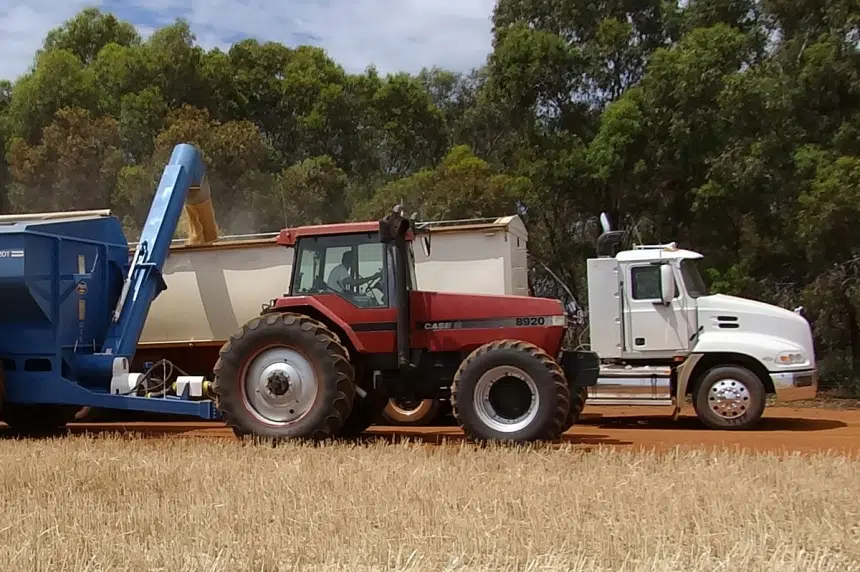Starting on March 1, farmers and agricultural producers in Saskatchewan will need to complete commercial semi driver training if they want to use semis to haul their products.
The province announced the new regulations Wednesday morning.
A media release from the government said that “anyone wishing to obtain an ‘F’ endorsement on their existing driver’s licence will be required to take 40 hours of commercial driver training.”
That’s set to go into effect March 1 of next year.
The designation comes with the restriction that the driver can use “a farm vehicle normally requiring a Class 1 driver’s licence only within a 100-(kilometre) radius of the address on the vehicle registration, and is restricted to operating within Saskatchewan’s borders.”
The required hours will then be increased for 2021, also on March 1, to 121.5 hours.
The government said the F endorsement will be eliminated, noting that “anyone wanting to operate a semi will require a Class 1 driver’s licence, which will include taking the full 121.5-hour mandatory training program.”
If a driver has completed the 40 hours of training, he/she can use that as credit toward the 121.5 hours.
Farm groups in the province said the effect of the changes on actual farmers won’t be uniform across Saskatchewan.
Saskatchewan Cattlemen’s Association CEO Ryder Lee said it will depend on each producer’s business model if the training, and using semis, is worthwhile.
“What’s going on in your neighbourhood with your operation, and can you make it make sense to make that next step?” he said. “(Those questions) will go into a lot of farmers’ calculations.”
Lee explained that not all livestock and cattle producers necessarily use semis to move their animals. He said factors like location, the needs of surrounding neighbours and farmers, herd size and budget costs will inform those decisions.
It could work out that a group of producers in a given area will organize together and designate one neighbour as the group’s driver.
“We have a hard time finding trucking when we need it. I’m going to buy a truck and be that person for me and my neighbours,” he said as an example.
Lee added that the association wants to see student loan support for producers who get the training. He said the association is talking with the province and the federal government over what that could look like.
The Agricultural Producers Association of Saskatchewan (APAS) said the training and improved safety measures are always a good thing.
President Todd Lewis said the organization does expect some “pushback” on the time commitments and cost of the training.
He said APAS also wants clarity on training requirements for part-time workers and temporary foreign workers.







